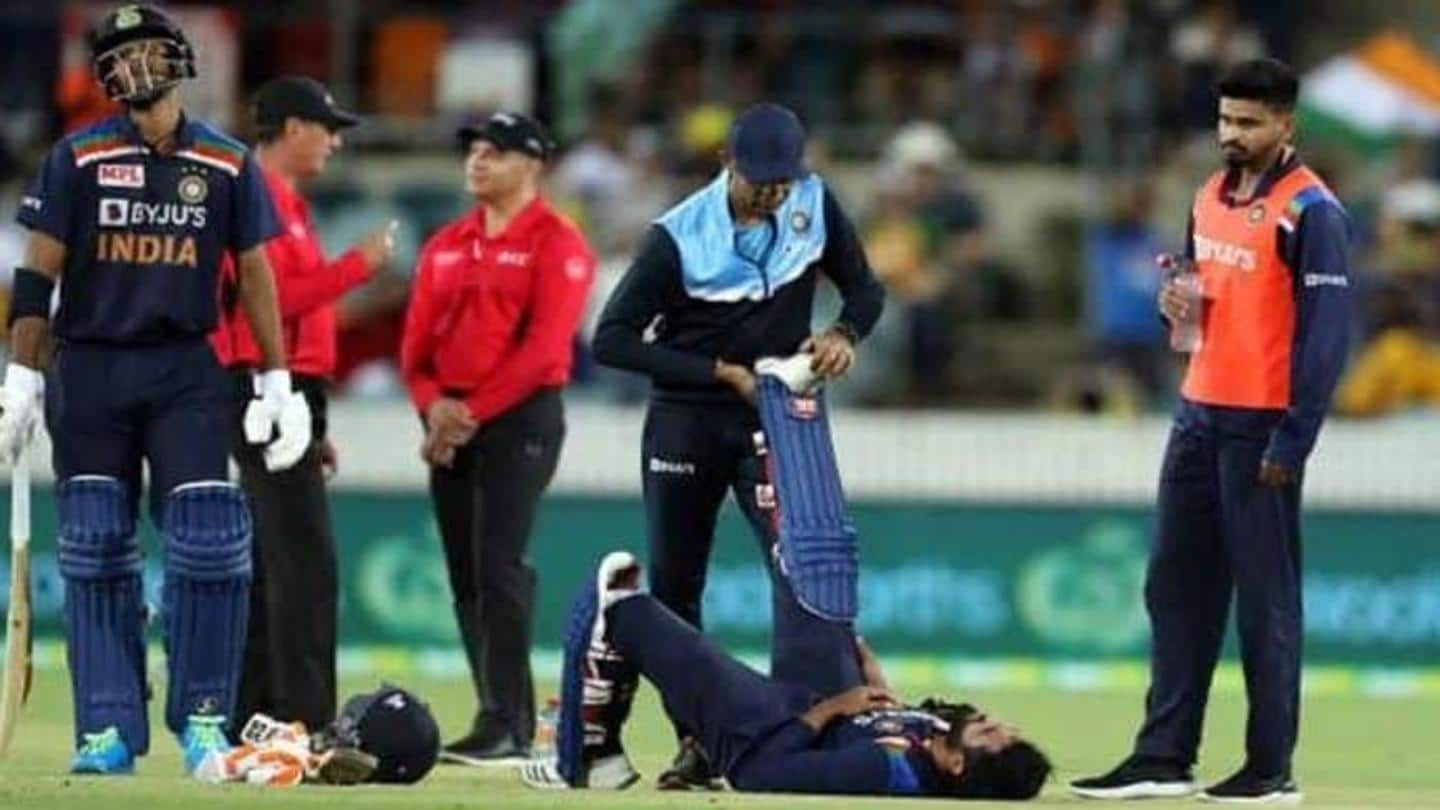
#NewsBytesExplainer: Should India have used concussion substitute for Ravindra Jadeja
What's the story
Indian all-rounder Ravindra Jadeja has been ruled out of the remaining T20Is after sustaining a concussion in the final T20I against Australia.
The 31-year-old also suffered a hamstring injury while batting in the game.
However, a controversy emanated in the second innings as Team India replaced Jadeja with leg-spinner Yuzvendra Chahal, who came in as a concussion substitute.
Let us unfurl the entire episode.
Incident
How did the incident transpire?
In the final over of India's innings, Jadeja top-edged a searing delivery from Mitchell Starc that struck his helmet.
However, he wasn't checked by the physio on the spot. Jadeja then played out the remaining balls, having whacked two boundaries.
It is interesting to note that the Indian all-rounder was also limping while running between the wickets, grabbing his hamstring constantly.
Substitute
Skipper Virat Kohli called in Chahal as a replacement
While Jadeja was being assessed during the mid-innings break, Team India asked for a concussion substitute (like-for-like replacement).
Match referee David Boon eventually granted the permission.
As a result, skipper Virat Kohli called in Chahal, who was allowed to bowl the entire four overs, as per the newly-introduced ICC rules.
Notably, Chahal was named the Player of the Match for his incredible 3/25.
Concept
What is a concussion substitute?
In 2019, the ICC allowed the use of concussion replacements in all international matches.
The rule was implemented during The Ashes when Marnus Labuschagne replaced the injured Steve Smith in the Lord's Test.
Notably, a like-for-like replacement can bat and bowl in place of a player with concussion or suspected concussion.
However, he must be restricted to the role which the replaced player performs.
Information
What does the rule state?
As per Rule 1.2.7.3 of the ICC playing conditions for concussion substitution, "The ICC Match Referee should ordinarily approve a Concussion Replacement Request if the replacement is a like-for-like player whose inclusion will not excessively advantage his team for the remainder of the match."
Appeal
Justin Langer seemed perturbed with the decision
Rule 1.2.7.7 states, "The decision of the ICC Match Referee in relation to any Concussion Replacement Request shall be final and neither team shall have any right of appeal."
However, in the mid-innings break, Australian head coach Justin Langer was seen having a discussion at length over the issue with Boon.
He was visibly agitated that India were allowed to use the concussion substitute.
Decision
Why didn't the Australians support this decision?
The Australians were seemingly flustered with the decision as Jadeja didn't opt for a concussion test on the spot.
However, according to the concussion guidelines, the concussion test can be taken at the end of the over as well, if not after the same delivery.
In this case, the incident happened in the 20th over. Hence, Jadeja was assessed at the end.
Concern
Another area of concern for the Aussies
The home side also targeted the term "like-for like".
After the match, all-rounder Moises Henriques questioned whether Chahal was the right player to replace Jadeja.
"I think the only real issue is you've got to ask yourself was it a like-for-like replacement? Is he Jadeja an out-and-out spinner?" Henriques stated.
Considering all the aforementioned arguments, the ICC would certainly want to offer some clarity.